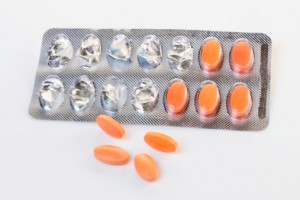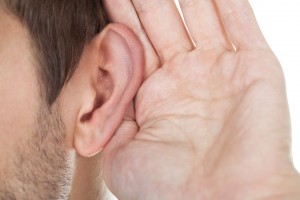Too Much of a Good Thing – Top Food Overdoses
 A great way to achieve and maintain as state of good health is to consume a diet chocked full of functional foods. Functional foods are foods that contain bioactive compounds which have been proven to reduce the risk of chronic disease and/or provide a beneficial physiological effect when they are consumed. Most fruits and vegetables fall into the functional foods category, so too do foods that contain omega-3 fatty acids (such as coldwater fish, walnuts and flaxseeds), and foods that contain probiotics (such as yoghurt, miso and kefir). Despite the beneficial effects of functional foods, it is possible to actually compromise your good health by consuming too many of them. Below are five foods that are conducive to good health in moderation but can be harmful when over consumed.
A great way to achieve and maintain as state of good health is to consume a diet chocked full of functional foods. Functional foods are foods that contain bioactive compounds which have been proven to reduce the risk of chronic disease and/or provide a beneficial physiological effect when they are consumed. Most fruits and vegetables fall into the functional foods category, so too do foods that contain omega-3 fatty acids (such as coldwater fish, walnuts and flaxseeds), and foods that contain probiotics (such as yoghurt, miso and kefir). Despite the beneficial effects of functional foods, it is possible to actually compromise your good health by consuming too many of them. Below are five foods that are conducive to good health in moderation but can be harmful when over consumed.
Functional Foods to Watch For
Fish
Although fish are chocked full of nutrients, such as protein and omega-3 fatty acids, consuming too much saltwater fish can be quite harmful. Unfortunately, most saltwater fish, including tuna, salmon and mackerel, contain mercury, which is an extremely toxic substance. This is problematic because mercury accumulates in our bodies and can eventually lead to very serious health effects such as nervous system damage and heart disease. This does not mean that you should avoid consuming saltwater fish all together, instead, experts recommend consuming up to two servings per week.
RELATED READING: Paying the Price of an Unhealthy Diet
Soy
Soy is an excellent source of protein, fiber, zinc and calcium and it has been found to promote heart health. Despite the excellent nutrient profile of most soy products, too much soy has been linked to cancer, dementia, osteoporosis, thyroid disorders, acne and reproductive disorders. Soy also contains phytoestrogens, which is a substance that mimics estrogen in the body when it is consumed and it can increase a women’s estrogen levels and consequently her risk for developing estrogen related cancers. In men, excessive soy intake can cause hormonal imbalances leading to physical changes and some scientists have even linked excessive soy to infertility. To be safe, you should limit your intake to two 25-30 gram servings of soy per day.
Coffee
Although coffee contains antioxidants and it has been found to reduce the risk for diabetes, gallbladder disease and even cancer, too much of it is not advised if you want to maintain a state of good health. The biggest problem with coffee is the caffeine that it contains, with a typical cup containing approximately 200 mg of it. Due to the caffeine content drinking 3 or more cups per day can result in undesirable side-effects such as: nausea, restlessness, insomnia, irregular heartbeat, muscle tremors, anxiety and headaches, states Mayo Clinic.
Water
This one may come as a surprise, given all the hype around water as a health panacea, but when it comes to water, it is possible to have too much of a good thing. Over consuming water can dilute the concentration of sodium in your blood and create an electrolyte imbalance—a condition known as hyponatremia. Symptoms of water intoxication may include: nausea, fatigue, frequent urination, headaches, mental disorientation and vomiting. Fortunately, this is not a common occurrence, and it tends to happen primarily to endurance athletes. How much water is too much, is not an exact science, and the answer will be different for everybody, however on average men need about 13 cups per day and women require approximately 9 cups, according to the Institute of Medicine.
Nuts and Seeds are Functional Foods, Too!
Nuts and seeds are considered functional foods because they contain a variety of vitamins, minerals and healthy fats and their consumption can lower the risk for heart disease. Despite this, nuts and seeds are very calorie and fat dense and too much of them can easily lead to weight gain. Most nuts and seeds are also quite high in omega-6 fatty acids, which Americans tend to get too much of already and overdosing on nuts and seeds can result in an even greater imbalance between the omega-3/omega-6 ratio that is required for good health. Try to consume no more than a handful of nuts and seeds or two tablespoons per day, and emphasize almonds, walnuts, cashews, sunflower seeds, sesame seeds, pumpkin seeds and flaxseeds, which are considered to be the healthiest types of nuts and seeds.
-
Weight Loss Tip Treat Yourself Like A Child
Whenever you feel your motivation slipping give yourself a boost by tr
-
Dropping The Carbs The Pros And Cons Of Ketogenic Dieting
We must all now be familiar with the Atkins Diet. Of all of the trend?
-
Weight Loss Tips For Beginners
Copyright (c) 2014 Its a lifestyle Fitne
-
Hemophilia increases risk of joint diseases, bleeding into joints
Hemophilia, a disorder that makes it difficult for the body to
-
Abdominal Fat - How You Will Be Able To Eliminate Midsection Fat By Calorie Shifting
So you dont know, having gained all that
-
Healthy Recipes for Weight Loss
To ensure that you stick to your weight loss programme, it is importan
- DON'T MISS
- Rose Oil - A Gift From The Flowers Of Love
- Some Healthy Weight Loss Tips For Quick Weight Loss!
- Crohn’s disease flare-up symptoms, triggers, management, and prevention
- The Optimum Weight Reduction Applying Weight Loss Shakes
- Fast Weight Loss With Exercise: Is It Possible?
- Easy Weight Loss - Healthy Diet Program
- How To Burn The Fat Without External Aid
- Burning Stomach Fat - The Key Ingredient
- How To Get Rid Of Red Ring Of Death Permanently, Affordably, And In Less Than 2 Hours!
- Choosing A Weight Loss Diet




